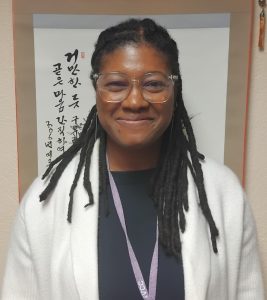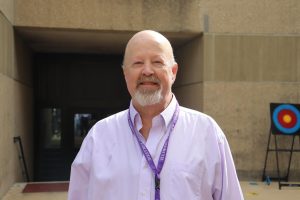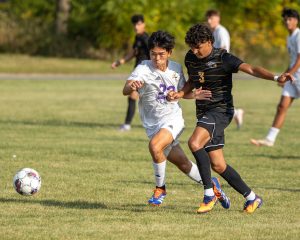A Beacon of Hope: Radio Host Inspires People of Color in Selfless Act of Representation
April 30, 2019
Radio host Nadia Valentine drew students to room CTC-125 with her talk on her experiences as a person of color in the Illinois Valley on Feb. 25.
The event was sponsored by the IVCC Diversity Team as part of the Black History Month events.
“I’m not here to make you feel terrible about being white,” Valentine reassured her audience. Instead, the goal of her presentation was to share the challenges she has faced as a person of color.
Valentine is an Illinois Valley native and attended La Salle-Peru High School.
She pointed out that people of color are not allowed to relax in the Illinois Valley because they experience racism often. Due to this, she has never felt at home here.
Racist acts are often thought of as violence towards people of color, but Valentine illustrates that that is often not the case.
A non-violent example of racism that has stuck with Valentine happened when she was a kid.
While at a birthday party, her friend’s younger brother told her that his father didn’t want her to come because he didn’t like black people.
Another moment Valentine remembers occurred in high school. A classmate tried to throw a pencil at someone else, but it ended up hitting her instead. As a joke, she kept the pencil and wasn’t planning on giving it back until the end of class. Things escalated, though, and her classmate called her the “n” word.
These memories of racism are all very vivid in Valentine’s mind.
As a result, Valentine developed a desire to fit in with her white classmates by trying to look more white. She chemically straightened her hair when she was younger, and it is still damaged from it today.
Valentine started to appreciate her curls more in high school.
As the time came for Valentine to make a college decision, she knew she wanted to leave the Illinois Valley. She considered both UCLA and Columbia, but her real first choice was Howard University, a historically black university.
As she weighed the pros and cons of each college, her plans changed as she felt “not black enough” to attend Howard University-although she had previously dreamed of attending there.
Valentine ended up choosing Drake University in Des Moines, Iowa, because it reminded her of the Illinois Valley.
Valentine was eager to continue her education at Drake because there was more diversity there than what she had previously been exposed to in high school. Unfortunately, fitting in was not as seamless as she initially hoped it would be.
Valentine recalls, “I was an outcast there as well. Other black people thought I was a sellout.”
Valentine found it difficult to relate to white students and black students because of her unique identity and prior experience in small-town America.
After class one day, Valentine’s professor recommended her for a position at a radio station as a fill-in. When the employee she was filling in for decided to take a permanent leave, Valentine became the first female black radio host for the station.
“The radio station has about 100,000 listeners, and about 98 percent of them are white conservatives,” Valentine noted.
Not too long after accepting the position, she became the target for more racism and discrimination from her listeners, many of them saying negative comments such as, “Quit your job,” publicly to her on Facebook.
Valentine has since graduated from Drake University and continues to work at a radio station.
Why does she stay, even with the scrutiny?
Valentine recalled a moment when a father complimented her by saying, “My daughter loves you! She wants to do what you do in the future. She gets so excited because she looks like you.”
Valentine said it meant something to her to represent the children of color in small-town Iowa that need her.



